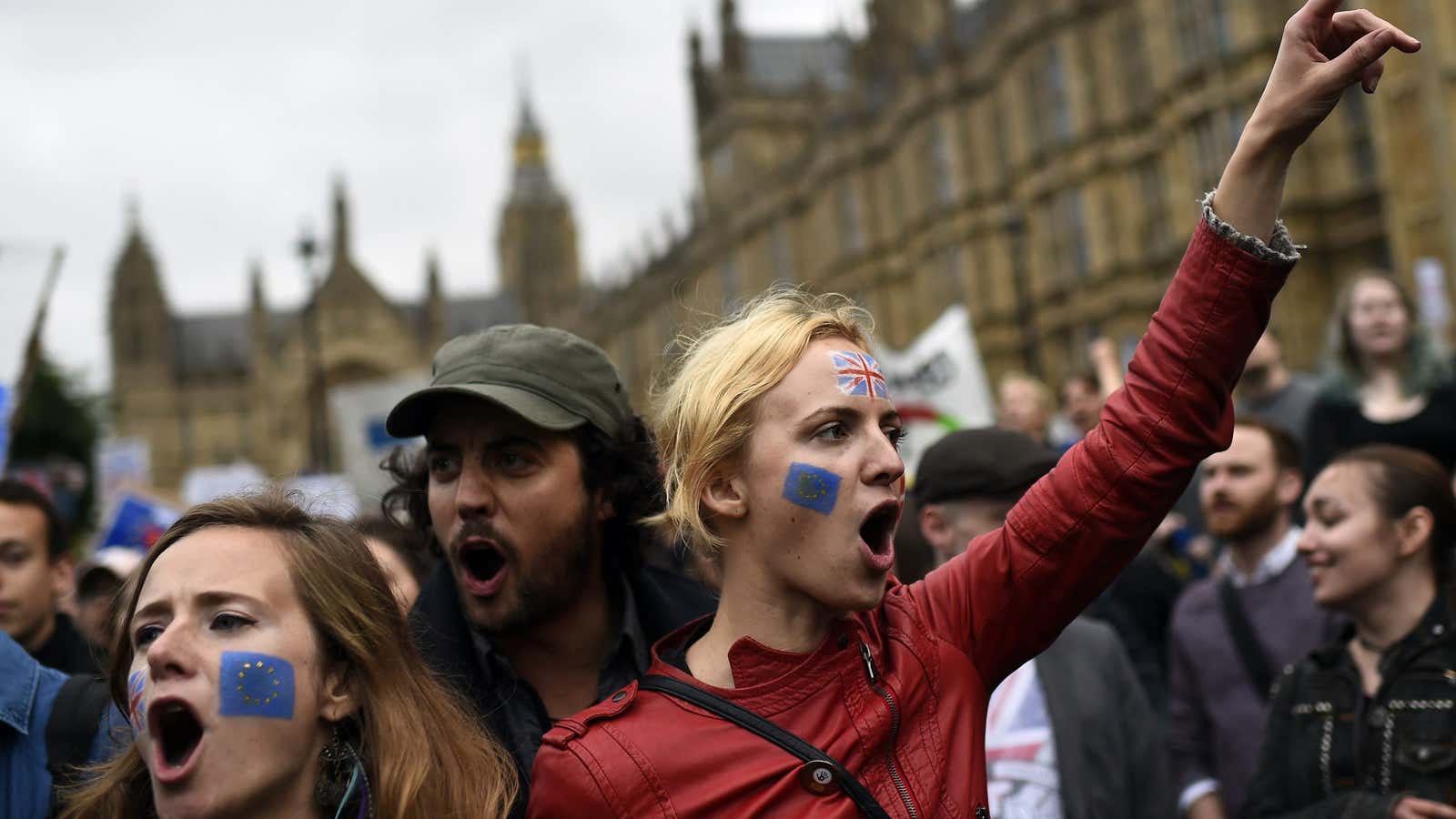The world’s most politically apathetic youth are finally mobilizing.
Voter turnout among young people is notoriously low in the UK—it has fallen from 66% in 1992 to around 40% in the last general election in 2015. But since mid-April, when prime minister Theresa May announced a snap election for June 8, voters aged 18-25 have registered to vote at historically high rates.
Over a million young people have registered to vote over the past month or so—the most of any age group. Over the past five weeks, more under-25s have registered to vote than at the same period in the run-up to the Brexit referendum last year and the general election in 2015.
For many young people in the UK, the Brexit vote triggered a wave of grief. Though the country as a whole narrowly voted to leave the EU, around two-thirds of 18-to-24-year-olds wanted to remain. The shock of that result may have inspired more young people to vote in the upcoming general election, in which Brexit policy is the biggest issue by far.
On the final day to register (May 22), nearly 250,000 under-25s did so, the most applications from any age group in a single day. Overall, some 3 million people have registered to vote since the British snap election was called. At the end of last year, around 46 million people were registered to vote in national elections in the UK.
Campaigners have pushed hard to get young people to register this year. Among the most prominent are British hip-hop artists, who have urged young fans to ensure that their voices are heard.
By contrast, Brits aged 65 and over were the smallest group registering to vote ahead of next month’s election. Just over 100,000 have registered since the election was announced. Since only people who change addresses need to register to vote, a greater share older voters, who are less likely to move from year to year, probably don’t need to re-register. Still, at the margin, the fall in registrations in the run-up to the upcoming election may show some waning interest among older voters.
The so-called “grey vote” is a particularly powerful constituency in the UK. According to a 2011 OECD study, the UK had the largest gap in voter turnout between citizens aged 55 and older versus 35 and younger:
This difference in turnout rate makes older voters an influential voting block (paywall) in British elections. While tuition fees have tripled in the past decade and many young people have been priced out of the housing market, older voters have gained from the policies that have pushed up property prices, on top of generous pension arrangements that ensure their incomes always rise in inflation-adjusted terms. The growth in median disposable income between retired and working people in Britain is a stark reminder of this growing generational divide.
The power of the grey vote was further highlighted this week when May launched her Conservative Party’s pre-election manifesto. As soon as she announced a plan to make elderly people pay more for their social care, the party’s lead over its main rival in the polls, the Labour Party, halved. Within days, May backtracked on the toughest aspects of the policy.
While young people are unlikely to swing the election in which the Conservatives enjoy a seemingly unassailable lead over the rest of the field, closing the turnout gap between the young and old would have more fundamental, far-reaching effects. That is, mainstream political parties may finally find it worth their while to pay more attention to young people’s concerns.
